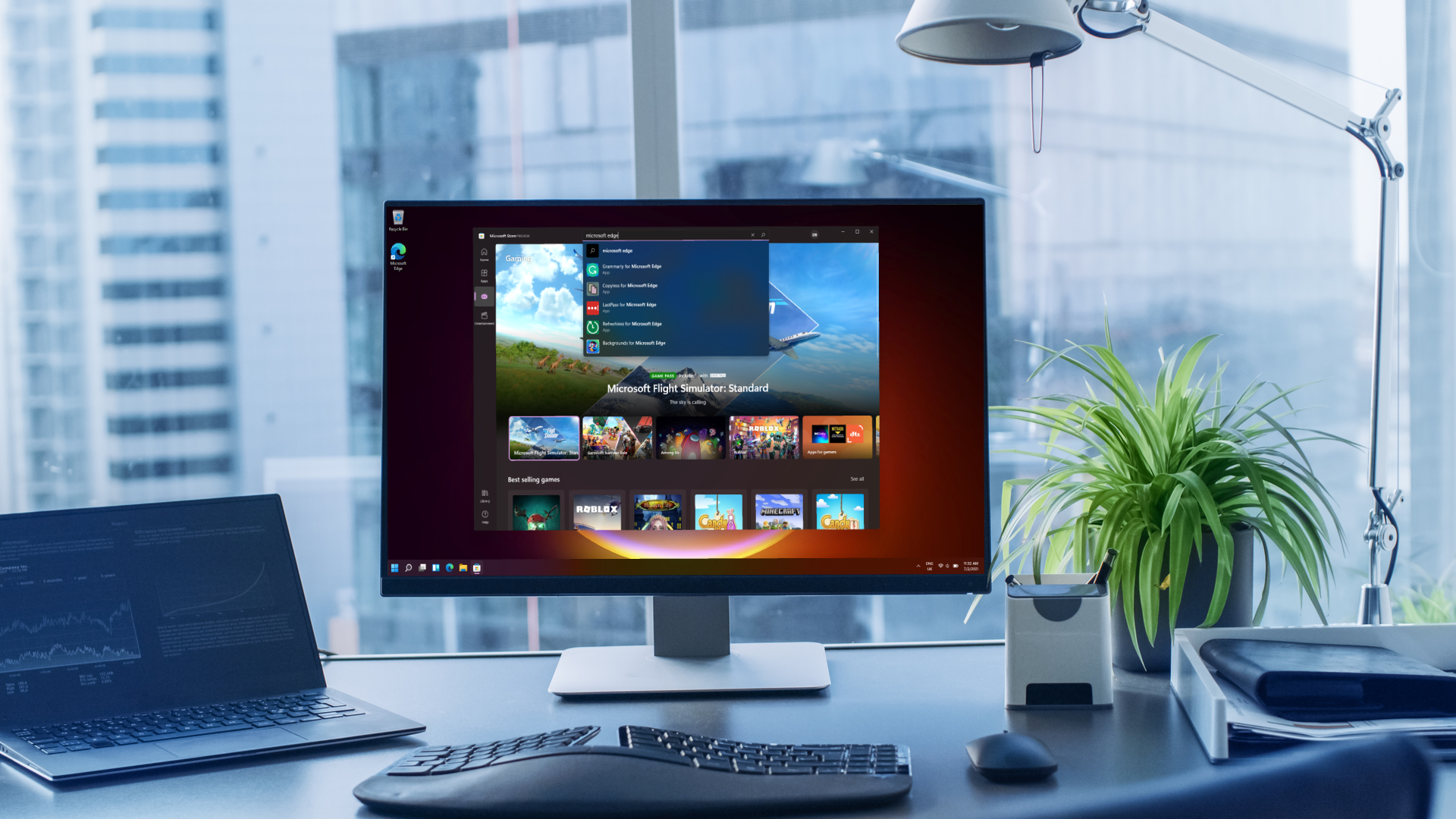Windows 11's secret weapon could be improved Wi-Fi thanks to Valve and Qualcomm
Loads of laptops could benefit

Sign up for breaking news, reviews, opinion, top tech deals, and more.
You are now subscribed
Your newsletter sign-up was successful
The newly-released Windows 11 operating system could bring big benefits to PC gamers who play multiplayer games via Wi-Fi thanks to support for Qualcomm FastConnect systems.
Using the 2.4 GHz and 5 GHz (or 6 GHz for Wi-Fi 6e devices) bands simultaneously, latency issues, which can impact how fast and responsive an online game acts and feels, can be eliminated, effectively using two Wi-Fi connections at once, and switching between the two.
- These are the best gaming routers
- We pick the best PC games
- How to download Windows 11
Because Wi-Fi used to introduce latency, PC gamers who required a fast and reliable internet connection would stick with using an Ethernet cable instead. However, this new technology should mean gaming via Wi-Fi is much better.
According to Qualcomm, in its tests, it found that the Wi-Fi Dual Station with Qualcomm 4-stream DBS technology to give it its full name, “consistently delivered sustained jitter free wireless gameplay similar to Ethernet latency under the same conditions,” and in certain cases lowered latency by up to four times.
Qualcomm’s Wi-Fi hardware, including FastConnect, appears in a huge range of products, including laptops from big names such as Acer and Lenovo. New Windows 11 laptops from these manufacturers should benefit from this new Wi-Fi tech. James Lin, General Manager, Notebooks, IT Products Business, Acer Inc, explained that “Acer’s new gaming notebooks that feature FastConnect 6900 connectivity will provide Ethernet-grade Wi-Fi” – a bold claim indeed.
This tech isn’t just for gaming, as any task that requires a lot of two-way traffic, such as video calls and remote management, could benefit from this.
Ian LeGrow, vice president, program management for Windows platforms and services at Microsoft, also stated that “Microsoft is pleased to bring ‘Wi-Fi Dual Station’ to the Windows 11 ecosystem, enabling our Windows OEMs and ecosystem leaders to deliver low-latency performance on the latest Wi-Fi hardware. Games and other latency-sensitive applications can now leverage two concurrent Wi-Fi connections providing best-in-class user experiences.”
Sign up for breaking news, reviews, opinion, top tech deals, and more.
Valve’s involvement
While Qualcomm and Microsoft worked closely to bring this new Wi-Fi tech to Windows 11, one of the most interesting aspects of the announcement was the involvement of Valve, the company behind the popular Steam games store (and upcoming Steam Deck handheld), as well as iconic games like Half-Life.
According to the announcement, Valve has added support for Wi-Fi Dual Station to the Steamworks SDK, so games such as Dota 2 and Counter-Strike: Global Offensive (CS:GO) will have built-in support, and when played on a laptop or PC with Windows 11 and Qualcomm FastConnect hardware, these games should run even better when online.
The collaboration with Valve could also mean this feature comes to the Steam Deck console, which begins shipping in December, 2021. As a handheld console, it will rely on Wi-Fi for multiplayer games, so improved latency will definitely be a plus, and could be a big deciding factor for Valve.
However, out of the box, the Steam Deck doesn’t run Windows 11, but the Linux-based Steam OS. This could point to future support for Linux and other operating systems, alongside Windows 11.

Analysis: Another great reason to upgrade to Windows 11
This new Wi-Fi technology from Qualcomm certainly promises a lot. The idea of playing competitive online games via a Wi-Fi network is often scoffed at by serious players, due to the latency and reliability issues that Wi-Fi introduces. Any lag or delay can mean the difference between winning or losing an important match.
This is why most gamers prefer a wired Ethernet connection – but that’s not always possible unless you want to trail cables all over your house.
If the Wi-Fi Dual Station technology can deliver on combining Ethernet-like latency with the convenience and flexibility of Wi-Fi, then this is another great reason to upgrade to Windows 11. If you want more reasons, check out our Windows 11 review.
- These are the best gaming laptops

Matt is TechRadar's Managing Editor for Core Tech, looking after computing and mobile technology. Having written for a number of publications such as PC Plus, PC Format, T3 and Linux Format, there's no aspect of technology that Matt isn't passionate about, especially computing and PC gaming. He’s personally reviewed and used most of the laptops in our best laptops guide - and since joining TechRadar in 2014, he's reviewed over 250 laptops and computing accessories personally.